Ruth: A Commentary
Published: Oct 2023
£58.00
After the significant and ground-breaking commentaries on Ezra and Nehemiah by Lisbeth Fried, she now turns her attention to a different genre of biblical literature and to the book of Ruth. Fried approaches Ruth as folktale, specifically, a fairy tale. This new reading of Ruth allows the book to be experienced in a new way, a way infrequently recognized, that provides novel but compelling insights into the author’s intentions and goals.
Fried uses Propp’s Morphology of a Folktale to provide the guideposts for her strikingly refreshing approach. The story of Ruth is one of a stranger in a strange land. Ruth’s author explores the meaning of identity, assimilation and acceptance. He asks whether identity can be changed, whether the Judean god and the Judean nationality can be taken on voluntarily, whether assimilation is possible,
whether the stranger can or should be welcomed into the bosom of a family, and indeed, whether he or she can be trusted. These are questions we deal with today, but it was a vital issue after the return from Babylon and on into the Hellenistic period, when foreigners (first Persian and then Greek) were everywhere, and in control of everyday life, and when their foreign ways were rampant. Ruth’s author recognizes that welcoming the stranger was and indeed is a scary proposition.
Like her Commentaries on Ezra and Nehemiah, the present volume includes a new translation of the book, plus text-critical notes on each verse which compares and contrasts the Hebrew, Greek, Latin, and Syriac versions as well as the Aramaic Targum. The Introduction and extensive chapter commentaries provide a discussion of the larger historical and literary issues. Fried’s commentary promises to revolutionize how we read the book of Ruth.
This is the fourth volume in the Critical Commentaries series.
Ruth: A Commentary
£58.00
After the significant and ground-breaking commentaries on Ezra and Nehemiah by Lisbeth Fried, she now turns her attention to a different genre of biblical literature and to the book of Ruth. Fried approaches Ruth as folktale, specifically, a fairy tale. This new reading of Ruth allows the book to be experienced in a new way, a way infrequently recognized, that provides novel but compelling insights into the author’s intentions and goals.
Fried uses Propp’s Morphology of a Folktale to provide the guideposts for her strikingly refreshing approach. The story of Ruth is one of a stranger in a strange land. Ruth’s author explores the meaning of identity, assimilation and acceptance. He asks whether identity can be changed, whether the Judean god and the Judean nationality can be taken on voluntarily, whether assimilation is possible,
whether the stranger can or should be welcomed into the bosom of a family, and indeed, whether he or she can be trusted. These are questions we deal with today, but it was a vital issue after the return from Babylon and on into the Hellenistic period, when foreigners (first Persian and then Greek) were everywhere, and in control of everyday life, and when their foreign ways were rampant. Ruth’s author recognizes that welcoming the stranger was and indeed is a scary proposition.
Like her Commentaries on Ezra and Nehemiah, the present volume includes a new translation of the book, plus text-critical notes on each verse which compares and contrasts the Hebrew, Greek, Latin, and Syriac versions as well as the Aramaic Targum. The Introduction and extensive chapter commentaries provide a discussion of the larger historical and literary issues. Fried’s commentary promises to revolutionize how we read the book of Ruth.
This is the fourth volume in the Critical Commentaries series.
Joel: Prophet of the Outpouring Spirit
Published: July 2023
£50.00
Jack Lundbom writes the first full-length critical commentary on the book of Joel in many years, and with a refreshing approach. It contains an extensive Introduction, beginning with the book’s place in the Hebrew and Greek canons, followed by a discussion of the Hebrew and LXX texts, open and closed sections, poetry and prose, rhetoric, the World of Joel, and theology of the book.
The volume employs for the first time ancient section markers and modern rhetorical criticism to better explicate the biblical text. This represents a major advance over source and form-critical work done by earlier scholars, which divided the text largely on the basis of genre and content. Yahweh’s answers to the people’s complaints over a drought and locust plague having descended upon Judah are thus brought together into a moving dialogue instead of being treated separately.
Lundbom provides a new translation of the biblical text, with comparisons being made to other prophetic works in both language and ideas. It sees Joel as standing firmly in the tradition of the biblical prophets, while at the same time being markedly different. With date and provenance of the book nowhere indicated, the world of Joel must be pieced together from internal evidence. Lundbom proposes that Joel is probably early fifth century, written sometime before Malachi (ca. 450). It is clearly post-exilic, being intimately familiar with the Temple with Jerusalem’s walls also standing, which means it must post-date Nehemiah’s rebuilding of city.
Lundbom concludes that the book is largely the work of the prophet Joel, but with a secondary writer or writers in 2.30—3.8 [Hebrew 3.3-4.8] repeating Joel’s authentic hope for Judah and additional judgement on foreign nations.
Joel: Prophet of the Outpouring Spirit
£50.00
Jack Lundbom writes the first full-length critical commentary on the book of Joel in many years, and with a refreshing approach. It contains an extensive Introduction, beginning with the book’s place in the Hebrew and Greek canons, followed by a discussion of the Hebrew and LXX texts, open and closed sections, poetry and prose, rhetoric, the World of Joel, and theology of the book.
The volume employs for the first time ancient section markers and modern rhetorical criticism to better explicate the biblical text. This represents a major advance over source and form-critical work done by earlier scholars, which divided the text largely on the basis of genre and content. Yahweh’s answers to the people’s complaints over a drought and locust plague having descended upon Judah are thus brought together into a moving dialogue instead of being treated separately.
Lundbom provides a new translation of the biblical text, with comparisons being made to other prophetic works in both language and ideas. It sees Joel as standing firmly in the tradition of the biblical prophets, while at the same time being markedly different. With date and provenance of the book nowhere indicated, the world of Joel must be pieced together from internal evidence. Lundbom proposes that Joel is probably early fifth century, written sometime before Malachi (ca. 450). It is clearly post-exilic, being intimately familiar with the Temple with Jerusalem’s walls also standing, which means it must post-date Nehemiah’s rebuilding of city.
Lundbom concludes that the book is largely the work of the prophet Joel, but with a secondary writer or writers in 2.30—3.8 [Hebrew 3.3-4.8] repeating Joel’s authentic hope for Judah and additional judgement on foreign nations.
Judges: Once Upon a Time in Israel
Published: Jun 2023
£60.00
Judges is the Bible’s end-of-the-frontier epic. It depicts the first generations of Israelite life in Canaan and portrays a set of memorable protagonists, the “judges,” who were wild enough to tame a wilderness, but too wild to persist into the next era of royal courts, central shrines, and political states. The core of Judges consists of a series of narratives about the outlaws, warlords and war-ladies, mercenaries, and jackleg and priests and prophets from ancient Ephraim whose exploits were recounted in a series of redacted documents that, to the chagrin of pious readers over the centuries, ended up in the Bible, of all places.
There is Ehud, the left-handed assassin on a grim solo labyrinthine mission in and out of an enemy fortress. There is Deborah, the alpha female who, in one chapter, commands an army and, in another, is credited with uttering her eponymous song, which deserves to be counted among the world’s great war poetry. There is Jael, the man-slaughtering Bedouin woman who is handy with a hammer. There is Gideon, the insecure hero who leads, in one story, an outnumbered elite band of warriors to victory over an enemy force of uncountable proportions and, in another story, a clannish vendetta filled with torture, arson, and revenge killings. There is the tale of Abimelech which traces the rise and fall of a gangster. There is Jephthah, the outcast summoned to rescue his tribe when they need his desperado skill set, but whose rash vow has fatal consequences for his daughter. Finally, there is Samson, one of folk literature’s most memorable characterizations, a walking, talking incarnation of unshaved, unbalanced hyper-masculinity.
This reading of the tales of Judges as a set of adventure stories from the early centuries of alphabetic literacy requires that we dig through mounds of didactic, theological, moralistic, messianic, and nationalistic landfill in order to reclaim the full glory—and horror—of their dark violence and eroticism, as well as to marvel at the coarse folk poetry in the tales’ narration and dialogue.
Judges: Once Upon a Time in Israel
£60.00
Judges is the Bible’s end-of-the-frontier epic. It depicts the first generations of Israelite life in Canaan and portrays a set of memorable protagonists, the “judges,” who were wild enough to tame a wilderness, but too wild to persist into the next era of royal courts, central shrines, and political states. The core of Judges consists of a series of narratives about the outlaws, warlords and war-ladies, mercenaries, and jackleg and priests and prophets from ancient Ephraim whose exploits were recounted in a series of redacted documents that, to the chagrin of pious readers over the centuries, ended up in the Bible, of all places.
There is Ehud, the left-handed assassin on a grim solo labyrinthine mission in and out of an enemy fortress. There is Deborah, the alpha female who, in one chapter, commands an army and, in another, is credited with uttering her eponymous song, which deserves to be counted among the world’s great war poetry. There is Jael, the man-slaughtering Bedouin woman who is handy with a hammer. There is Gideon, the insecure hero who leads, in one story, an outnumbered elite band of warriors to victory over an enemy force of uncountable proportions and, in another story, a clannish vendetta filled with torture, arson, and revenge killings. There is the tale of Abimelech which traces the rise and fall of a gangster. There is Jephthah, the outcast summoned to rescue his tribe when they need his desperado skill set, but whose rash vow has fatal consequences for his daughter. Finally, there is Samson, one of folk literature’s most memorable characterizations, a walking, talking incarnation of unshaved, unbalanced hyper-masculinity.
This reading of the tales of Judges as a set of adventure stories from the early centuries of alphabetic literacy requires that we dig through mounds of didactic, theological, moralistic, messianic, and nationalistic landfill in order to reclaim the full glory—and horror—of their dark violence and eroticism, as well as to marvel at the coarse folk poetry in the tales’ narration and dialogue.
Nahum, Habakkuk and Malachi
Published: May 2023
£20.00 – £60.00
Nahum, ironically named ‘the compassionate one’, Habakkuk who laments God’s failure to answer his questions about justice and violence, and the eponymous Malachi are the three characters whose record is the focus of this reading. The commentary offers a close reading of the Hebrew text of each book along with its rhetorical features. The three books are read from within their several ancient contexts, literary, cultural and theological.
Only Habakkuk is specifically identified as a ‘prophet’, while Nahum’s and Malachi’s editors studiously avoid the term, raising a question about why these three books have been honoured with a place in the Scroll of the Twelve rather than somewhere else. Each book is titled a Massa’ by its editor, identifying them as examples of an emerging literary trope that combines both prophetic and wisdom elements in a didactic purpose.
Nahum is identified not as a prophet but as a Visionary. He saw the dire situation of his people and expressed his longing for God’s intervention. The God of whom he spoke was one ‘jealous, and avenging’, one he longed would act against the overwhelming power of the Assyrians that threatened his people.
Habakkuk, though identified as a prophet, shows no evidence of any prophetic activity. He laments the failure of justice and consequent violence as witnessed (1.2-4). The Lament-form used has been torn in two by the editor for the purpose of inserting a Dialogue with God (1.5-2.20), a Dialogue that fails completely to answer Habakkuk’s ‘Why?’ questions in 1.1-2. The concluding portion of the Lament (3.2-19) witnesses to Habakkuk’s continued trust in his God despite the divine failure to resolve his questions.
The eponymous ‘Malachi’ is identified as a Messenger, never as a prophet, as the book reports six different and independent messages covering issues that arose during an extended period in early postexilic Judaean life. Using a frame of six Question-Response forms that feature rhetorical questions, his audiences deny the validity of each negative charge against them.
Graham Ogden has been a United Bible Societies’ Translation Consultant. He lives in Ballarat, Victoria, Australia.
Nahum, Habakkuk and Malachi
£20.00 – £60.00
Nahum, ironically named ‘the compassionate one’, Habakkuk who laments God’s failure to answer his questions about justice and violence, and the eponymous Malachi are the three characters whose record is the focus of this reading. The commentary offers a close reading of the Hebrew text of each book along with its rhetorical features. The three books are read from within their several ancient contexts, literary, cultural and theological.
Only Habakkuk is specifically identified as a ‘prophet’, while Nahum’s and Malachi’s editors studiously avoid the term, raising a question about why these three books have been honoured with a place in the Scroll of the Twelve rather than somewhere else. Each book is titled a Massa’ by its editor, identifying them as examples of an emerging literary trope that combines both prophetic and wisdom elements in a didactic purpose.
Nahum is identified not as a prophet but as a Visionary. He saw the dire situation of his people and expressed his longing for God’s intervention. The God of whom he spoke was one ‘jealous, and avenging’, one he longed would act against the overwhelming power of the Assyrians that threatened his people.
Habakkuk, though identified as a prophet, shows no evidence of any prophetic activity. He laments the failure of justice and consequent violence as witnessed (1.2-4). The Lament-form used has been torn in two by the editor for the purpose of inserting a Dialogue with God (1.5-2.20), a Dialogue that fails completely to answer Habakkuk’s ‘Why?’ questions in 1.1-2. The concluding portion of the Lament (3.2-19) witnesses to Habakkuk’s continued trust in his God despite the divine failure to resolve his questions.
The eponymous ‘Malachi’ is identified as a Messenger, never as a prophet, as the book reports six different and independent messages covering issues that arose during an extended period in early postexilic Judaean life. Using a frame of six Question-Response forms that feature rhetorical questions, his audiences deny the validity of each negative charge against them.
Graham Ogden has been a United Bible Societies’ Translation Consultant. He lives in Ballarat, Victoria, Australia.
Obadiah and Haggai
Published: May 2022
£15.00 – £35.00
This new commentary questions whether Obadiah’s ‘vision’ is a prophetic book in the traditional sense, or a communal appeal to God to deal with Edom, similar to the cry in Psalm 137.7-9. Ogden suggests an editorial structure for the document built around the numerically central v. 11 that provides a focus for the appeal, one which seeks an immediate response from God. The conclusion is that this is fundamentally an appeal for God to act, rather than a promise of a future possibility.
The Haggai commentary argues that the document is a collection of loosely related stories about the prophet Haggai’s encounters with Zerubbabel and
Joshua, Judaean leaders who did not share the prophet’s sense of urgency about providing God with a refurbished house. Haggai is seen as a somewhat distant figure whose narrow worldview and theology saw him in conflict with the openness of the two community leaders. Haggai’s explanation for the crisis confronting the community showed little concern for its impact on the community, his calls to ‘Consider…’ pressuring them to conform to his plan for God’s ‘house’.
Both commentaries take the view that from the time of the destruction of Jerusalem and its temple in 587 bce, and for many many years thereafter, there was a wide range of oral material in circulation that gave expression to Judaean pain and anger at what had happened, and to the deceitfulness of its ‘brother’ Edom’s participation in the demise of the southern kingdom. The editors of both Obadiah and Haggai drew upon that range of oral stories that existed in multiple forms to make their individual reports. Both documents have deep roots in Deuteronomic and nationalistic ideology.
Ogden provides a reading that prioritizes the rhetorical elements in the Hebrew text while noting its historical, social and theological settings.
Obadiah and Haggai
£15.00 – £35.00
This new commentary questions whether Obadiah’s ‘vision’ is a prophetic book in the traditional sense, or a communal appeal to God to deal with Edom, similar to the cry in Psalm 137.7-9. Ogden suggests an editorial structure for the document built around the numerically central v. 11 that provides a focus for the appeal, one which seeks an immediate response from God. The conclusion is that this is fundamentally an appeal for God to act, rather than a promise of a future possibility.
The Haggai commentary argues that the document is a collection of loosely related stories about the prophet Haggai’s encounters with Zerubbabel and
Joshua, Judaean leaders who did not share the prophet’s sense of urgency about providing God with a refurbished house. Haggai is seen as a somewhat distant figure whose narrow worldview and theology saw him in conflict with the openness of the two community leaders. Haggai’s explanation for the crisis confronting the community showed little concern for its impact on the community, his calls to ‘Consider…’ pressuring them to conform to his plan for God’s ‘house’.
Both commentaries take the view that from the time of the destruction of Jerusalem and its temple in 587 bce, and for many many years thereafter, there was a wide range of oral material in circulation that gave expression to Judaean pain and anger at what had happened, and to the deceitfulness of its ‘brother’ Edom’s participation in the demise of the southern kingdom. The editors of both Obadiah and Haggai drew upon that range of oral stories that existed in multiple forms to make their individual reports. Both documents have deep roots in Deuteronomic and nationalistic ideology.
Ogden provides a reading that prioritizes the rhetorical elements in the Hebrew text while noting its historical, social and theological settings.
The Book of Job
Published: Jun 2015
£25.00 – £70.00
John Gray, who was Professor of Hebrew and Semitic Languages in the University of Aberdeen, left at his death in 2000 a complete manuscript of a commentary on the Book of Job. Rich in text-critical and philological observations, the manuscript has been carefully prepared for the press; it will soon become a standard work for scholars and students of the biblical book, and a fitting tribute to the sound judgment and innovative scholarship of its author.
John Gray was noted especially for his books The Legacy of Canaan (1957; 2nd edn, 1964), The Biblical Doctrine of the Reign of God (1979), and his commentaries, I and II Kings (1963; 2nd edn, 1970) and Joshua, Judges and Ruth (1967). Gray's commentary on Job, which is prefaced by a lengthy general introduction, is the first volume in a new series of commentaries on the text of the Hebrew Bible. All the volumes will concentrate on the text criticism and philology of the Hebrew text, a feature notably lacking or merely perfunctory in many current biblical commentary series.
The Book of Job
£25.00 – £70.00
John Gray, who was Professor of Hebrew and Semitic Languages in the University of Aberdeen, left at his death in 2000 a complete manuscript of a commentary on the Book of Job. Rich in text-critical and philological observations, the manuscript has been carefully prepared for the press; it will soon become a standard work for scholars and students of the biblical book, and a fitting tribute to the sound judgment and innovative scholarship of its author.
John Gray was noted especially for his books The Legacy of Canaan (1957; 2nd edn, 1964), The Biblical Doctrine of the Reign of God (1979), and his commentaries, I and II Kings (1963; 2nd edn, 1970) and Joshua, Judges and Ruth (1967). Gray's commentary on Job, which is prefaced by a lengthy general introduction, is the first volume in a new series of commentaries on the text of the Hebrew Bible. All the volumes will concentrate on the text criticism and philology of the Hebrew text, a feature notably lacking or merely perfunctory in many current biblical commentary series.
Proverbs
Published: Jan 2015
£15.00 – £35.00
In previous commentaries on Proverbs, little is said about any literary and thematic unity in the book. This commentary, by contrast, reads Proverbs not as a collection of disjointed aphorisms, but as a book of symmetrically arranged wisdom-teaching where topics, forms of expression and rhetoric are constantly hearkening back to what has preceded or heralding what is to follow.
In the preface (1.1-7), the editors of Proverbs introduce a book of wisdom-teaching which the audience, the youth of Israel, are supposed to understand by discerning the figurative language in which the teaching is expressed. The present-day reader of Proverbs is invited in this commentary to read from the same perspective, becoming, like the original audience, engaged in the unfolding figurative language. At the outset Proverbs is set well within the household (1.8 —9.18), where a mother and father urge their naive and uncommitted son to retain their teaching and to successfully establish his own household.
Wisdom is personified as a teacher and a welcoming host whose metaphorical banquet is laid out in the poetry of the topical groups identified in the 'Proverbs of Solomon' (10.1 —22.16). The parental wisdom teaching in the 'Words of the Wise' (22.17 —24.34) addresses a youth now on the threshold of public life, marking out a path of courageous wisdom amid attractive but self-destructive alternatives. In the 'Other Proverbs of Solomon' (chaps. 25 —29) a wealth of imagery and stark antitheses highlight earlier themes and inculcate personal responsibility in a lawless society. The Book of Proverbs concludes with the striking portraits of three eminent wise ones (chaps. 30 —31), who are presumably imbued with the spirit of the Book.
Proverbs
£15.00 – £35.00
In previous commentaries on Proverbs, little is said about any literary and thematic unity in the book. This commentary, by contrast, reads Proverbs not as a collection of disjointed aphorisms, but as a book of symmetrically arranged wisdom-teaching where topics, forms of expression and rhetoric are constantly hearkening back to what has preceded or heralding what is to follow.
In the preface (1.1-7), the editors of Proverbs introduce a book of wisdom-teaching which the audience, the youth of Israel, are supposed to understand by discerning the figurative language in which the teaching is expressed. The present-day reader of Proverbs is invited in this commentary to read from the same perspective, becoming, like the original audience, engaged in the unfolding figurative language. At the outset Proverbs is set well within the household (1.8 —9.18), where a mother and father urge their naive and uncommitted son to retain their teaching and to successfully establish his own household.
Wisdom is personified as a teacher and a welcoming host whose metaphorical banquet is laid out in the poetry of the topical groups identified in the 'Proverbs of Solomon' (10.1 —22.16). The parental wisdom teaching in the 'Words of the Wise' (22.17 —24.34) addresses a youth now on the threshold of public life, marking out a path of courageous wisdom amid attractive but self-destructive alternatives. In the 'Other Proverbs of Solomon' (chaps. 25 —29) a wealth of imagery and stark antitheses highlight earlier themes and inculcate personal responsibility in a lawless society. The Book of Proverbs concludes with the striking portraits of three eminent wise ones (chaps. 30 —31), who are presumably imbued with the spirit of the Book.
Psalms
Published: May 2009
£15.00 – £35.00
The Book of Psalms is often seen as an anthology of prayers and hymns from which the reader may extract a selection as need or interest dictates. However, a recent development in Psalms scholarship has been a discussion of whether the collection of psalms has some overall structure. Is the whole of the Book of Psalms greater than the sum of its individual parts? This commentary argues that it is and presents a continuous reading of the Book of Psalms.
Moreover, the long-standing tradition, found within both Judaism and Christianity, of associating the psalms with David is used as a reading strategy. In this volume, the Psalms are presented sequentially. Each has its place in the collection but thirty-five are treated at greater length. They are read, at least in the first two books (Psalms 1 —72), as if they were David's words. Beyond that a more complex and developed association between David and the Psalms is demanded. David becomes a figure of hope for a different future and a new royal reign reflecting the reign of Yahweh. Throughout, David remains a model of piety for all who seek to communicate with God in prayer. It is in the light of this that later disasters in the life of Israel, especially the Babylonian Exile, can be faced. In the Book of Psalms, the past, in terms of both David's life and the history of Israel, is the key to future well-being and faithfulness.
Psalms
£15.00 – £35.00
The Book of Psalms is often seen as an anthology of prayers and hymns from which the reader may extract a selection as need or interest dictates. However, a recent development in Psalms scholarship has been a discussion of whether the collection of psalms has some overall structure. Is the whole of the Book of Psalms greater than the sum of its individual parts? This commentary argues that it is and presents a continuous reading of the Book of Psalms.
Moreover, the long-standing tradition, found within both Judaism and Christianity, of associating the psalms with David is used as a reading strategy. In this volume, the Psalms are presented sequentially. Each has its place in the collection but thirty-five are treated at greater length. They are read, at least in the first two books (Psalms 1 —72), as if they were David's words. Beyond that a more complex and developed association between David and the Psalms is demanded. David becomes a figure of hope for a different future and a new royal reign reflecting the reign of Yahweh. Throughout, David remains a model of piety for all who seek to communicate with God in prayer. It is in the light of this that later disasters in the life of Israel, especially the Babylonian Exile, can be faced. In the Book of Psalms, the past, in terms of both David's life and the history of Israel, is the key to future well-being and faithfulness.
Mark, Second Edition
Published: Apr 2009
£15.00 – £35.00
In this commentary, Broadhead explores the Gospel of Mark for literary designs that might guide modern readers. He gives special attention to structure, strategy, significance and the appropriation of meaning, and his analysis shows the Gospel as a sequential account which employs a strategy of reciprocity among its episodes. Clear signs are created within this Gospel, the meaning of which is negotiated by the first readers in the aftermath of the Temple's fall. Modern readers are encouraged to connect these signs to their own world and to initiate a new performance of this Gospel.
This Second Edition is a reprint, with altered pagination, of the volume first published in 1991 by Sheffield Academic Press.
Mark, Second Edition
£15.00 – £35.00
In this commentary, Broadhead explores the Gospel of Mark for literary designs that might guide modern readers. He gives special attention to structure, strategy, significance and the appropriation of meaning, and his analysis shows the Gospel as a sequential account which employs a strategy of reciprocity among its episodes. Clear signs are created within this Gospel, the meaning of which is negotiated by the first readers in the aftermath of the Temple's fall. Modern readers are encouraged to connect these signs to their own world and to initiate a new performance of this Gospel.
This Second Edition is a reprint, with altered pagination, of the volume first published in 1991 by Sheffield Academic Press.
Job
Published: Sep 2008
£15.00 – £35.00
This commentary on the book of Job is a non-technical commentary but it is full of Whybray's most mature reflections on the book.
The Introduction deals with the nature and purpose of the book, its specific and distinctive theology, its themes and its various parts and their mutual relationship. Thereafter, Norman Whybray, who is renowned for his insightful commentaries, usually comments on small sections of the text, and verse-by-verse in some especially difficult passages.
As a whole, his commentary is illustrative of the fact that the book of Job is more concerned with the nature of God than with the problem of suffering.
This is a reprint of the original edition in 1998.
Job
£15.00 – £35.00
This commentary on the book of Job is a non-technical commentary but it is full of Whybray's most mature reflections on the book.
The Introduction deals with the nature and purpose of the book, its specific and distinctive theology, its themes and its various parts and their mutual relationship. Thereafter, Norman Whybray, who is renowned for his insightful commentaries, usually comments on small sections of the text, and verse-by-verse in some especially difficult passages.
As a whole, his commentary is illustrative of the fact that the book of Job is more concerned with the nature of God than with the problem of suffering.
This is a reprint of the original edition in 1998.
Hebrews, Second Edition
Published: Feb 2008
£15.00 – £35.00
This commentary on the Letter to the Hebrews envisages the recipients of the letter as a community that has embraced the Christian message but is beginning to question its adequacy to meet their spiritual needs. They have given up the richness of Jewish ritual and cultic tradition for a way of life that lacks the venerable symbols and institutions they had previously valued.
Gordon highlights the arguments and rhetorical strategies the author uses to counter this feeling of 'cultic deficit' as he draws attention to what they actually possess in consequence of their Christian commitment.
The Letter to the Hebrews has particular contemporary relevance today because, in warning the community against 'going back', the author implies that Christianity has superseded their ancestral Jewish faith. That may seem a slight on the religion 'superseded', but Gordon points out that Judaism itself, as well as Christianity, represents a significant break with the religion of the Hebrew Bible/Old Testament. Jewish —Christian dialogue would profit from being conducted in that light.
For this Second Edition, the author has written an additional Introduction, and the pagination of this edition differs from that of the first.
Hebrews, Second Edition
£15.00 – £35.00
This commentary on the Letter to the Hebrews envisages the recipients of the letter as a community that has embraced the Christian message but is beginning to question its adequacy to meet their spiritual needs. They have given up the richness of Jewish ritual and cultic tradition for a way of life that lacks the venerable symbols and institutions they had previously valued.
Gordon highlights the arguments and rhetorical strategies the author uses to counter this feeling of 'cultic deficit' as he draws attention to what they actually possess in consequence of their Christian commitment.
The Letter to the Hebrews has particular contemporary relevance today because, in warning the community against 'going back', the author implies that Christianity has superseded their ancestral Jewish faith. That may seem a slight on the religion 'superseded', but Gordon points out that Judaism itself, as well as Christianity, represents a significant break with the religion of the Hebrew Bible/Old Testament. Jewish —Christian dialogue would profit from being conducted in that light.
For this Second Edition, the author has written an additional Introduction, and the pagination of this edition differs from that of the first.
2 Chronicles
Published: Dec 2007
£15.00 – £35.00
Across the pages of 2 Chronicles a colourful cast of characters passes in breathless parade before the reader. The tales of the kings of Judah are told in sequence, from Rehoboam 'the Enlarger' (who on the contrary shrinks the kingdom) to Zedekiah 'the Righteous' (who equally contrariwise profanes the divine name). These motley monarchs are preceded by the unparalleled King Solomon of All Israel and succeeded by the imperial King Cyrus of Persia, and all the while the tellers of the tales weave an insistent ideological thread through the fabric of their stories. John Jarick's reading of Chronicles brings out the fascination and discomfort of handling an ancient scroll that presents itself as the authoritative account of how things were and how they ought to be.
2 Chronicles
£15.00 – £35.00
Across the pages of 2 Chronicles a colourful cast of characters passes in breathless parade before the reader. The tales of the kings of Judah are told in sequence, from Rehoboam 'the Enlarger' (who on the contrary shrinks the kingdom) to Zedekiah 'the Righteous' (who equally contrariwise profanes the divine name). These motley monarchs are preceded by the unparalleled King Solomon of All Israel and succeeded by the imperial King Cyrus of Persia, and all the while the tellers of the tales weave an insistent ideological thread through the fabric of their stories. John Jarick's reading of Chronicles brings out the fascination and discomfort of handling an ancient scroll that presents itself as the authoritative account of how things were and how they ought to be.
Judges
Published: Oct 2007
£15.00 – £35.00
In this new contribution to the Readings series of commentaries, Roger Ryan offers a challenge to the fashionable disdain for the heroes of the Book of Judges. As against the current consensus majoring on the supposed flaws in the characters of the judges, and denigrating them as participants in Israel's moral and religious decline, he paints a positive portrait of each of the book's judge-deliverers.
The key element in all the stories of the judges is that each of them wins independence for oppressed Israelites against great odds —an element that should predispose readers to a favourable evaluation of the heroes. Ehud slaughters an enemy king when the only weapon he has is a homemade dagger. Barak resolutely charges downhill against enemy chariots reinforced with iron. Jael slaughters an enemy commander by improvising with a hammer and a tent peg. Gideon defeats hordes of nomadic invaders with a small token army. The lone hero Samson slaughters the Philistine foe in great numbers.
The Book of Judges presents in this reading a dark story-world in which its characters take heroic risks as they resolve conflicts by violent means. Their stories are jubilantly told and readers are expected to be neither squeamish nor censorious.
Judges
£15.00 – £35.00
In this new contribution to the Readings series of commentaries, Roger Ryan offers a challenge to the fashionable disdain for the heroes of the Book of Judges. As against the current consensus majoring on the supposed flaws in the characters of the judges, and denigrating them as participants in Israel's moral and religious decline, he paints a positive portrait of each of the book's judge-deliverers.
The key element in all the stories of the judges is that each of them wins independence for oppressed Israelites against great odds —an element that should predispose readers to a favourable evaluation of the heroes. Ehud slaughters an enemy king when the only weapon he has is a homemade dagger. Barak resolutely charges downhill against enemy chariots reinforced with iron. Jael slaughters an enemy commander by improvising with a hammer and a tent peg. Gideon defeats hordes of nomadic invaders with a small token army. The lone hero Samson slaughters the Philistine foe in great numbers.
The Book of Judges presents in this reading a dark story-world in which its characters take heroic risks as they resolve conflicts by violent means. Their stories are jubilantly told and readers are expected to be neither squeamish nor censorious.
1 Chronicles, Second Edition
Published: Oct 2007
£15.00 – £35.00
The books of Chronicles have a certain fantasy quality about them. They create an imaginary world in which things happen just so, and in which any potentially untidy loose ends in their narrative of the past are tied together in a highly systematic way. This is storytelling with the didactic purpose of inculcating a particular ideology, bombarding the reader with a kaleidoscopic procession of heroes and villains and presenting a frontierland of danger and opportunity.
John Jarick's focus on the literary world of Chronicles provides a fresh reading of the work, foregrounding the often unrecognized artistry in the telling of the tale —including at times a distinctly musical language and a careful mathematical precision. But at the same time he does not hide the dark underbelly of the writing, with its persistent note of conformity to the political and religious system advocated by the storytellers. This edition is a reprint of the original 2002 edition with different pagination. A companion volume on 2 Chronicles is published for the first time in 2007.
1 Chronicles, Second Edition
£15.00 – £35.00
The books of Chronicles have a certain fantasy quality about them. They create an imaginary world in which things happen just so, and in which any potentially untidy loose ends in their narrative of the past are tied together in a highly systematic way. This is storytelling with the didactic purpose of inculcating a particular ideology, bombarding the reader with a kaleidoscopic procession of heroes and villains and presenting a frontierland of danger and opportunity.
John Jarick's focus on the literary world of Chronicles provides a fresh reading of the work, foregrounding the often unrecognized artistry in the telling of the tale —including at times a distinctly musical language and a careful mathematical precision. But at the same time he does not hide the dark underbelly of the writing, with its persistent note of conformity to the political and religious system advocated by the storytellers. This edition is a reprint of the original 2002 edition with different pagination. A companion volume on 2 Chronicles is published for the first time in 2007.
Qoheleth, Second Edition
Published: May 2007
£15.00 – £35.00
Qoheleth's driving question, according to Ogden, is posed in the opening lines of his book. It is the question, What lasting advantage (yithron) results from the multitude of activities in which humans find themselves engaged? In a word, the answer is, None; but the supplementary question remains, How shall we then live?
Qoheleth is no pessimist. Even though he believes that nothing survives from the activities of life, he encourages his readers to live life to the full, to 'eat, drink and enjoy what God provides'. Wisdom is one of those enjoyable benefits of life, but even it has its limitations: it can never produce an understanding of the totality.
What of the classic term hebel (traditionally translated 'vanity') in Qoheleth's thought? It is much better understood, argues Ogden, as 'enigma' or 'mystery', and the mystery it points to is the mystery of the yithron: how is joy the proper goal of human life when we know it must inevitably come to an end without leaving any surplus?
Qoheleth, Second Edition
£15.00 – £35.00
Qoheleth's driving question, according to Ogden, is posed in the opening lines of his book. It is the question, What lasting advantage (yithron) results from the multitude of activities in which humans find themselves engaged? In a word, the answer is, None; but the supplementary question remains, How shall we then live?
Qoheleth is no pessimist. Even though he believes that nothing survives from the activities of life, he encourages his readers to live life to the full, to 'eat, drink and enjoy what God provides'. Wisdom is one of those enjoyable benefits of life, but even it has its limitations: it can never produce an understanding of the totality.
What of the classic term hebel (traditionally translated 'vanity') in Qoheleth's thought? It is much better understood, argues Ogden, as 'enigma' or 'mystery', and the mystery it points to is the mystery of the yithron: how is joy the proper goal of human life when we know it must inevitably come to an end without leaving any surplus?
Haggai
Published: Oct 2006
£15.00 – £35.00
This new commentary is organized around a distinctive discourse analysis of the small prophetic book of Haggai, and an appreciation of its tightly crafted narrative. Identifying six discrete oracles from the prophet Haggai, Meadowcroft structures his analysis of the narrative around those six oracles.
Thematically, the centre of Haggai's prophecy is the role of the temple within the life of the people of God. The desolation of the temple is bound up with the desolation of the land and the desolation of the people on the land. Rebuilding the temple will be the means to break the cycle of desolation. But things are more complex than that. Rebuilding the temple must happen within the fraught imperial context; and rebuilding the temple will foreground a tension between institutional life and the life of the Spirit.
Contextualizing Haggai in today's world, Meadowcroft offers an extensive prolegomenon on reading Haggai as scripture. In it he hears a challenge to the Church in the West and a call to rediscover humanity's priestly role in the temple of an environment under threat of desolation.
Haggai
£15.00 – £35.00
This new commentary is organized around a distinctive discourse analysis of the small prophetic book of Haggai, and an appreciation of its tightly crafted narrative. Identifying six discrete oracles from the prophet Haggai, Meadowcroft structures his analysis of the narrative around those six oracles.
Thematically, the centre of Haggai's prophecy is the role of the temple within the life of the people of God. The desolation of the temple is bound up with the desolation of the land and the desolation of the people on the land. Rebuilding the temple will be the means to break the cycle of desolation. But things are more complex than that. Rebuilding the temple must happen within the fraught imperial context; and rebuilding the temple will foreground a tension between institutional life and the life of the Spirit.
Contextualizing Haggai in today's world, Meadowcroft offers an extensive prolegomenon on reading Haggai as scripture. In it he hears a challenge to the Church in the West and a call to rediscover humanity's priestly role in the temple of an environment under threat of desolation.
Isaiah
Published: Oct 2006
£15.00 – £35.00
Peter Miscall's commentary on Isaiah was among the first volumes in the series Readings published by JSOT Press in 1993. Sheffield Phoenix Press is now relaunching the series, under the editorship of John Jarick, with a revised reprint of Miscall's work (including a new preface), and an entirely new volume on Haggai by Tim Meadowcroft.
The aim of the series remains to present compact literary readings of the biblical books, unencumbered by the paraphernalia of traditional criticism and alert to the impact of literary studies on biblical interpretation. Each contributor to the series approaches their text from their own personal literary position.
In this fine and characteristic study, Miscall concentrates especially on the play of images in the prophetic book, their interweaving and constant intertextuality.
Isaiah
£15.00 – £35.00
Peter Miscall's commentary on Isaiah was among the first volumes in the series Readings published by JSOT Press in 1993. Sheffield Phoenix Press is now relaunching the series, under the editorship of John Jarick, with a revised reprint of Miscall's work (including a new preface), and an entirely new volume on Haggai by Tim Meadowcroft.
The aim of the series remains to present compact literary readings of the biblical books, unencumbered by the paraphernalia of traditional criticism and alert to the impact of literary studies on biblical interpretation. Each contributor to the series approaches their text from their own personal literary position.
In this fine and characteristic study, Miscall concentrates especially on the play of images in the prophetic book, their interweaving and constant intertextuality.
Jeremiah, Volume 1
Published: May 2006
£17.50
In this remarkable commentary, first published in 1986, Carroll offered the first systematic study of the book that turned its back on the prevailing trend to use the book to reconstruct the historical Jeremiah, propounding rather the view that the book was the compilation of many small units, much edited and reworked, which were rarely connected originally with a prophet Jeremiah.
Carroll's work has all the expected features of a major biblical commentary: thorough investigation of the original text, in this case also of the sharply divergent Septuagint translation, deep acquaintance with the scholarly literature on the book, unceasing close reading of the work in its final shape and in its detail. But it adds a distinctively Carrollian dimension: its unrelenting analysis of the often conflicting ideological and theological forces that created every aspect of the book, demanding of its readers that they approach it as an unremittingly intellectual literary work.
Unaccountably, this commentary, published originally in the Old Testament Library series of Westminster Press in the USA and SCM Press in the UK, has gone out of print. Sheffield Phoenix Press offers this reprinted edition both because of its continuing significance and as a personal tribute to its author, whose untimely death occurred in 2000.
Jeremiah, Volume 1
£17.50
In this remarkable commentary, first published in 1986, Carroll offered the first systematic study of the book that turned its back on the prevailing trend to use the book to reconstruct the historical Jeremiah, propounding rather the view that the book was the compilation of many small units, much edited and reworked, which were rarely connected originally with a prophet Jeremiah.
Carroll's work has all the expected features of a major biblical commentary: thorough investigation of the original text, in this case also of the sharply divergent Septuagint translation, deep acquaintance with the scholarly literature on the book, unceasing close reading of the work in its final shape and in its detail. But it adds a distinctively Carrollian dimension: its unrelenting analysis of the often conflicting ideological and theological forces that created every aspect of the book, demanding of its readers that they approach it as an unremittingly intellectual literary work.
Unaccountably, this commentary, published originally in the Old Testament Library series of Westminster Press in the USA and SCM Press in the UK, has gone out of print. Sheffield Phoenix Press offers this reprinted edition both because of its continuing significance and as a personal tribute to its author, whose untimely death occurred in 2000.


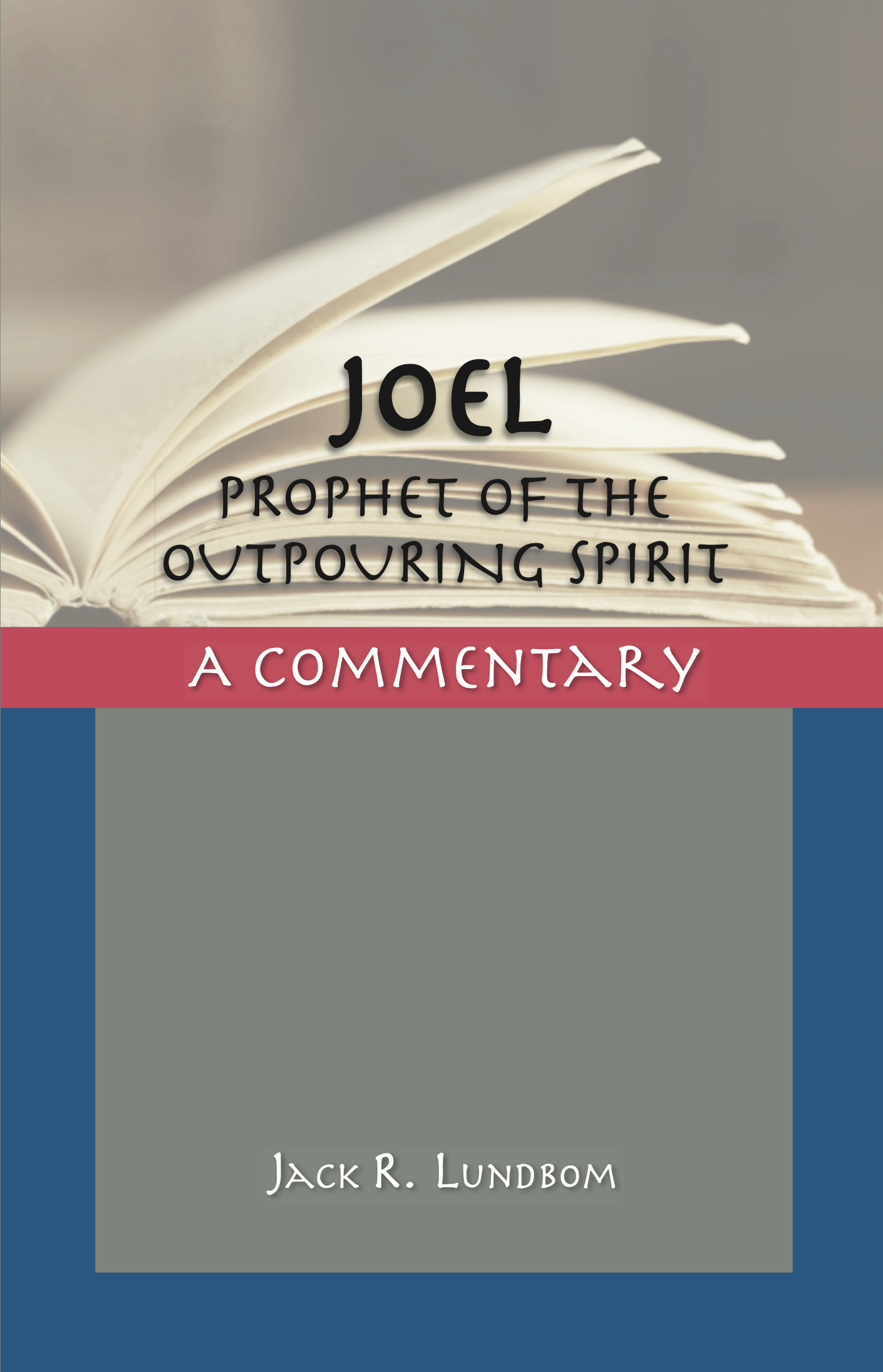

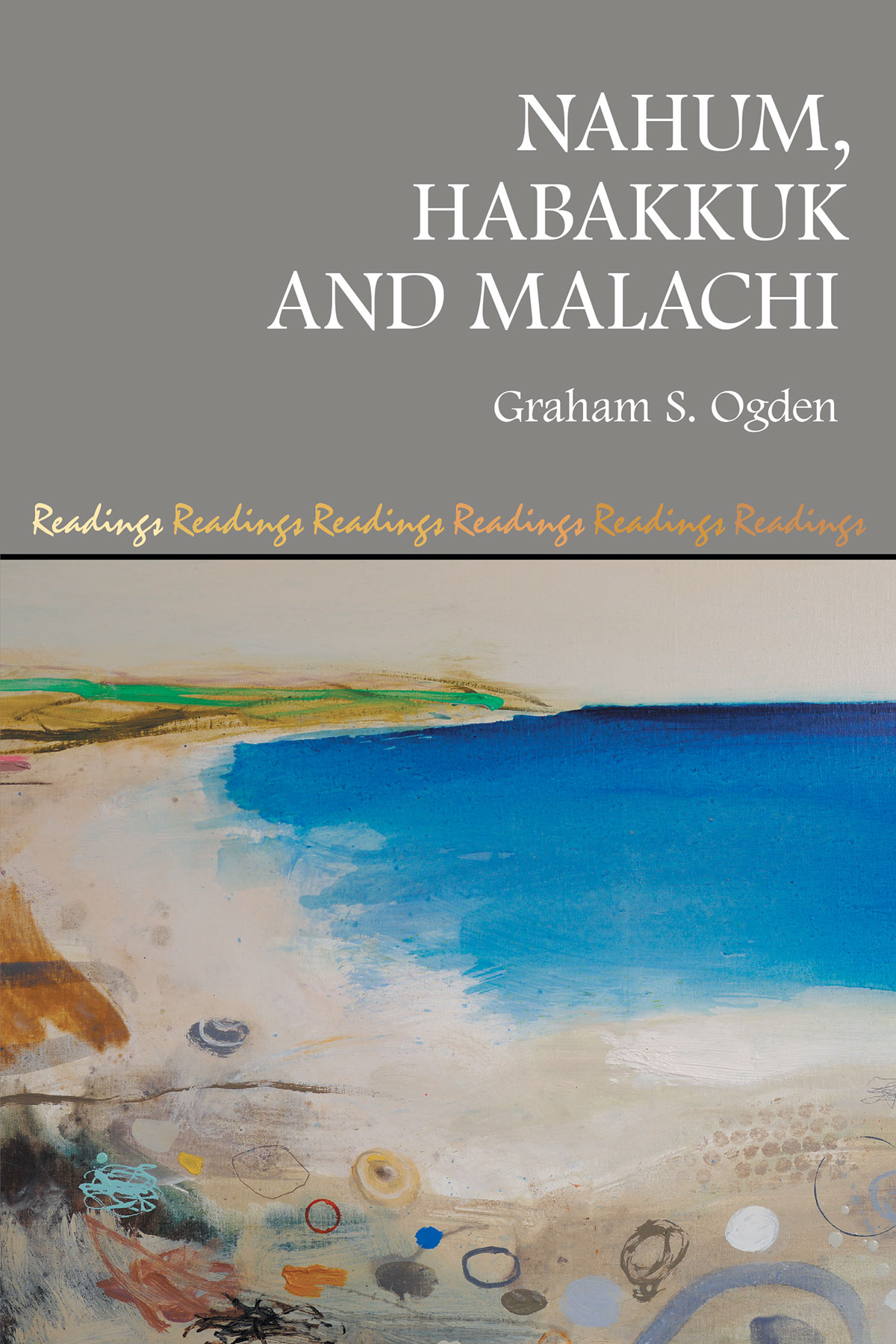

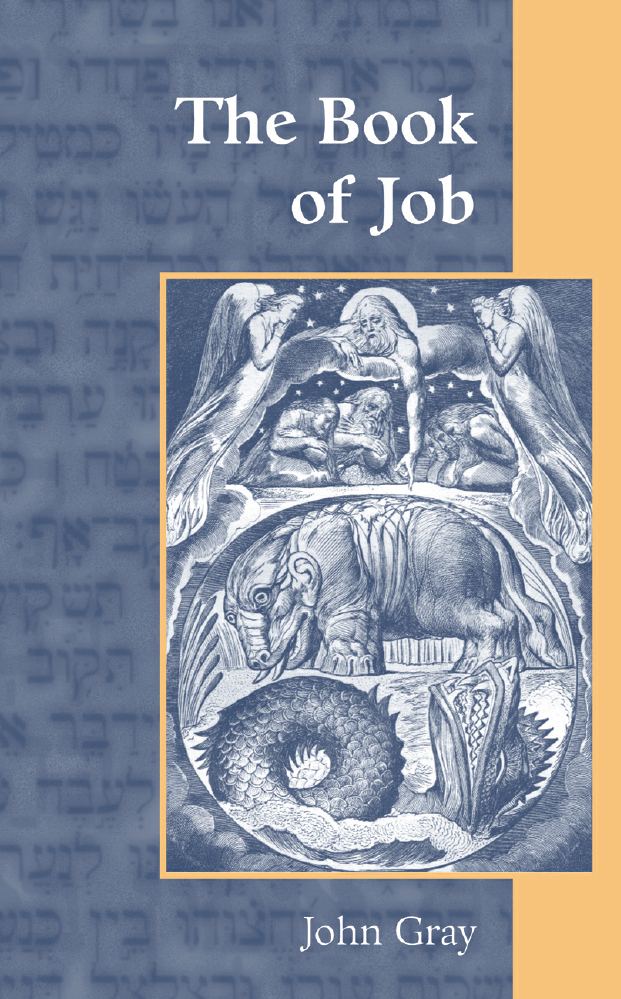



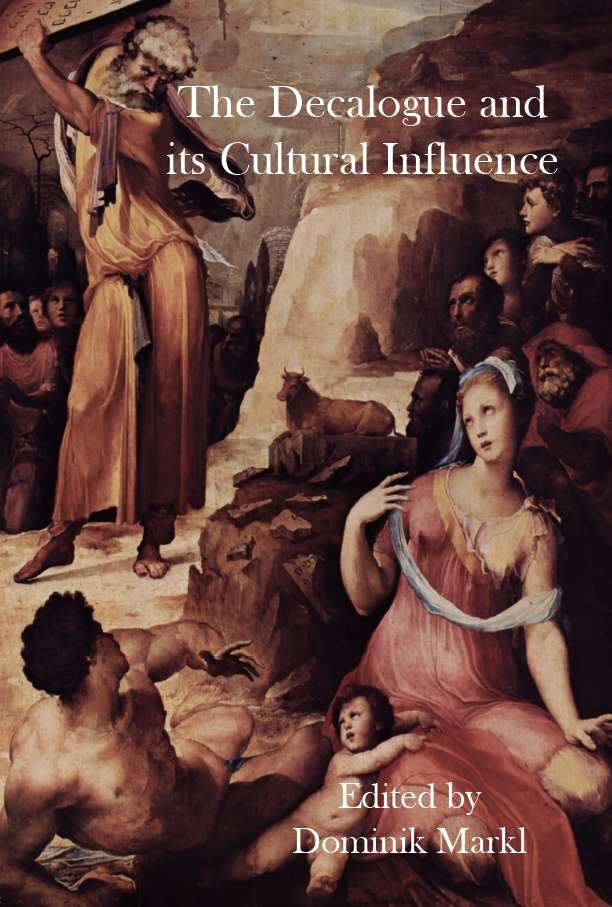

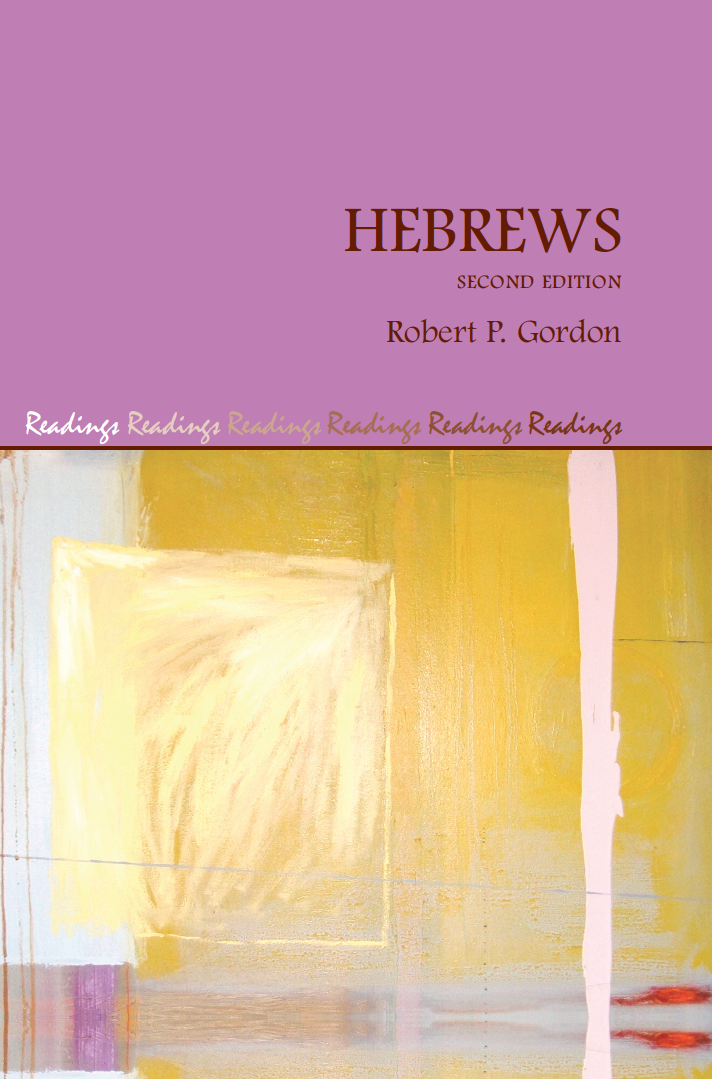
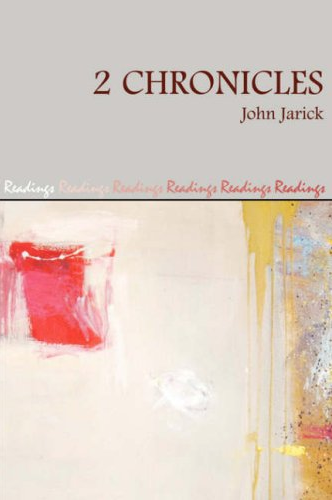
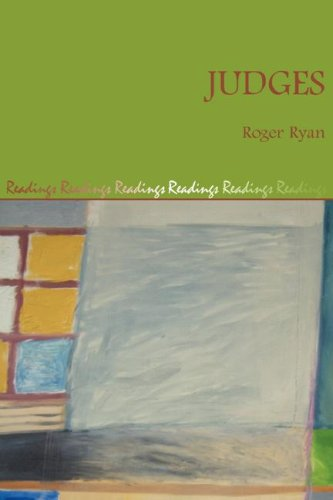
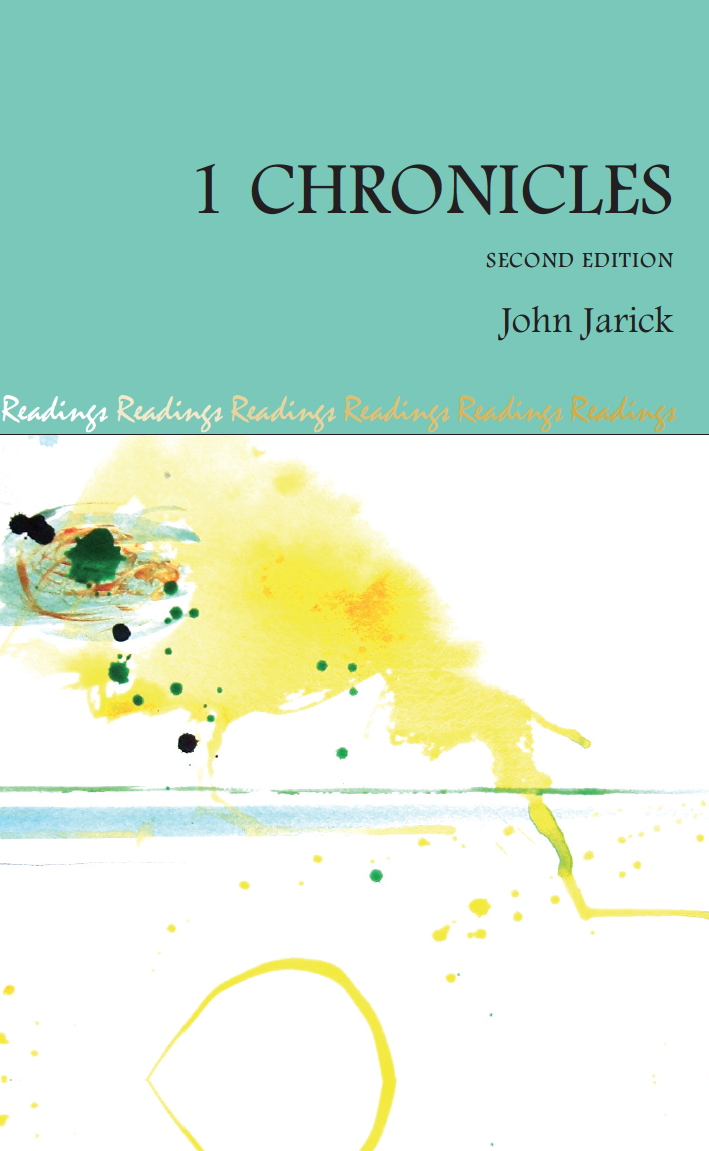
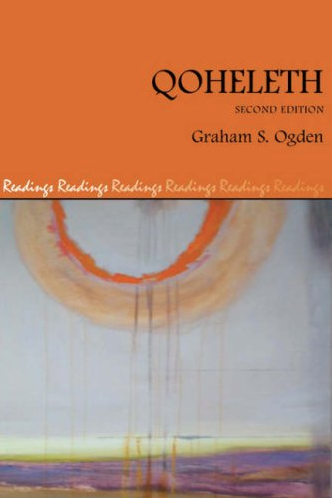

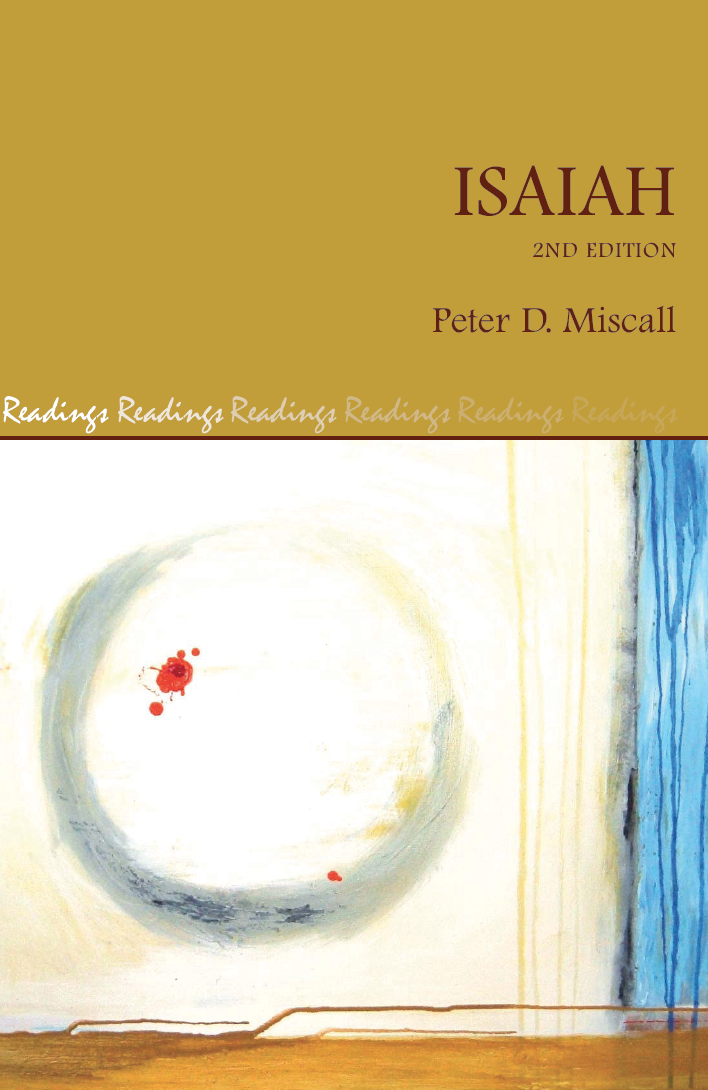

Amos and Micah
Amos and Micah